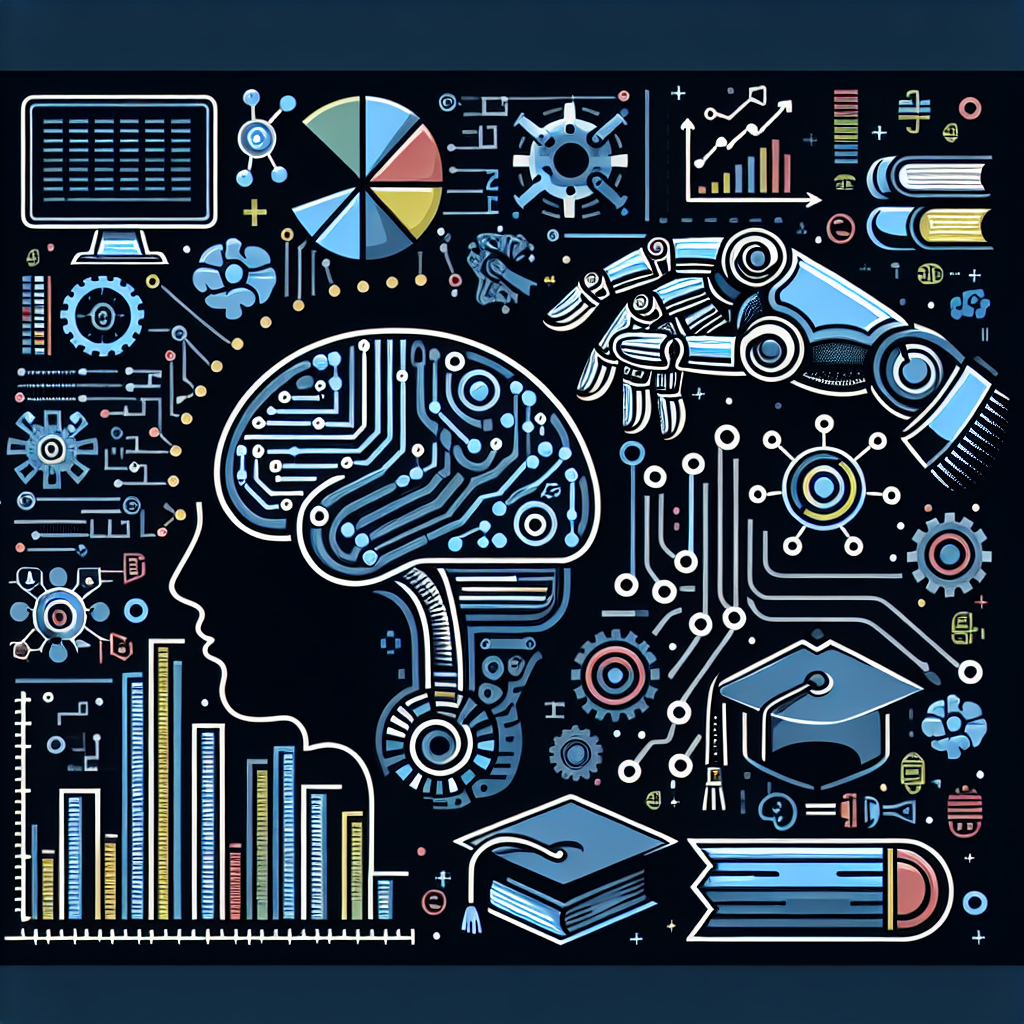In recent years, the education sector has seen a tremendous shift towards the integration of technology in teaching and learning. One of the most promising technologies in this space is Artificial Intelligence (AI) and Data Analytics. These technologies have the potential to revolutionize the way educational institutions collect, analyze, and utilize student data to improve learning outcomes.
AI and Data Analytics in education involve the use of algorithms and machine learning techniques to analyze large sets of data collected from students. This data may include academic performance, attendance, engagement levels, and other relevant information. By analyzing this data, educators can gain valuable insights into student behaviors, learning patterns, and areas of improvement.
One of the key benefits of using AI and Data Analytics in education is the ability to personalize learning experiences for students. By analyzing individual student data, educators can identify areas where students may be struggling and provide targeted interventions to help them succeed. This personalized approach to learning can lead to improved academic performance and higher levels of student engagement.
Another benefit of AI and Data Analytics in education is the ability to predict student outcomes. By analyzing historical data and trends, educators can identify patterns that may indicate future academic success or challenges. This information can be used to provide early interventions for students who may be at risk of falling behind, ultimately leading to improved learning outcomes.
Furthermore, AI and Data Analytics can also help educational institutions improve their operational efficiency. By analyzing data on student attendance, course enrollment, and other relevant metrics, institutions can optimize their resources and make data-driven decisions to improve overall student experience.
Overall, the integration of AI and Data Analytics in education has the potential to transform the way students learn and educators teach. By harnessing the power of data, educational institutions can create more personalized learning experiences, improve student outcomes, and enhance operational efficiency.
FAQs:
Q: How is student data collected for AI and Data Analytics in education?
A: Student data can be collected from a variety of sources, including learning management systems, student information systems, online assessments, and other digital tools used in the classroom. This data is typically anonymized and aggregated to protect student privacy.
Q: How is AI used to analyze student data in education?
A: AI algorithms are used to analyze large sets of student data to identify patterns, trends, and insights that can inform teaching and learning practices. Machine learning techniques are often used to predict student outcomes and personalize learning experiences.
Q: How can educators use AI and Data Analytics to improve learning outcomes?
A: Educators can use AI and Data Analytics to identify areas where students may be struggling and provide targeted interventions to help them succeed. By analyzing student data, educators can personalize learning experiences, predict student outcomes, and make data-driven decisions to improve overall learning outcomes.
Q: What are the ethical considerations of using AI and Data Analytics in education?
A: Ethical considerations include data privacy, security, and bias in algorithms. Educators must ensure that student data is protected and used responsibly, and that AI algorithms are fair and transparent in their decision-making processes.
In conclusion, AI and Data Analytics have the potential to revolutionize the education sector by harnessing student data for improved learning outcomes. By analyzing data, educators can personalize learning experiences, predict student outcomes, and make data-driven decisions to enhance overall student success. As technology continues to evolve, the integration of AI and Data Analytics in education will play an increasingly important role in shaping the future of teaching and learning.

